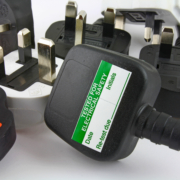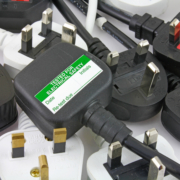Commercial PAT Testing
Portable appliance testing or PAT, is the checking of electrical appliances and equipment to ensure they are safe to use. Portable appliance testing generally forms part of a company’s health and safety policy.
Why do I need a PAT Test?
There are many potential causes of electrical fires. Some of the most common include overloaded circuits, faulty wiring, and damaged or broken electrical cords or appliances. Other potential causes include flammable materials that are too close to an electrical source, water damage, and circuit breakers that fail to trip when there’s an overload. While any of these things can cause an electrical fire, they’re more likely to occur if your office has outdated or damaged electrical wiring. If your office is in an old building, it’s important to have your wiring checked by a qualified electrician to make sure it meets current safety standards.
What is the legal requirement for PAT testing?
One way you can ensure your electrical appliances are safe and in a good working condition is via PAT testing. In the United Kingdom, PAT testing is not a legal requirement. However, legislations such as, The health & safety at work act of 1974, The provision use of work equipment regulation of 1998, The management of health & safety at work regulation of 1999 and The electricity at work regulation of 1989 require all electrical equipment with the potential to cause injury to be maintained in a safe working condition.
Commercial Portable Appliance Testing
PAT testing should be carried out by a competent person on a regular basis, as specified in the manufacturer’s instructions or as required by your company’s health and safety policy. A competent person is an individual who’s completed the appropriate training, knowledgeable and holds an up to date PAT testing Certificate.
While anyone can get qualified to carry out a PAT test, we highly recommend that you source a qualified electrician who is certified in PAT testing. A qualified electrician will have the experience and knowledge to identify potential risks as well as offer a solution to prevent accidents. Additionally, a qualified electrician will be very familiar with commercial standards, as a result they’ll notice issues that only a trained eye will pick up.
PAT testing is essential to ensure that electrical appliances and equipment are safe to use, and to prevent the risk of fire or electrocution.
Commercial PAT testing involves a visual inspection of the appliance or equipment, as well as an insulation and earth continuity test. The test results are logged on a PAT testing certificate, which should be kept on file.
Commercial PAT testing is carried out by a qualified electrician, and usually takes place every year. PAT testing is crucial for many businesses. As well as conforming to HSE regulations PAT testing is a good way to ensure that your insurance policy is up to date.
Commercial PAT Testing Conclusion
The cost of a PAT test can vary depending on a number of factors, such as the number of appliances, travel and parking expenses, and the location of the appliances. For buildings with lots of appliances, the price per item can be between 70p and 80p. If there are only a few appliances, the price per item may be between £1 and £2. However, charges for high-risk environments such as building sites or industrial sites may be higher than the prices listed above. This is because factors such as built-in desks or hard to reach outlets can make testing more difficult than usual.
If you are thinking of having commercial PAT testing carried out, then please contact us for a free quote. We offer a competitive rate, and our qualified electricians will be able to carry out the test quickly and efficiently.
For further advice on Electrical Safety follow this link – Electrical Safety





